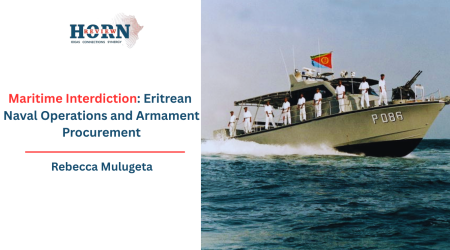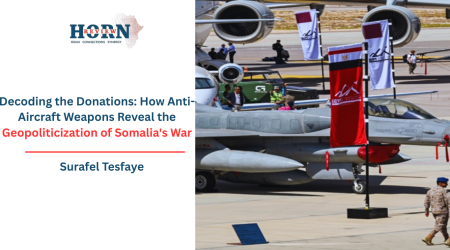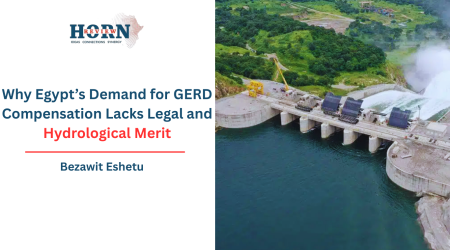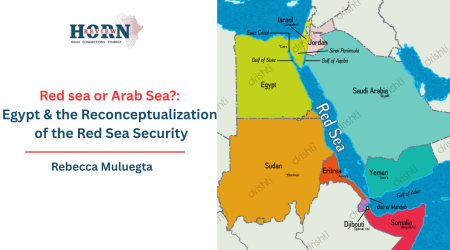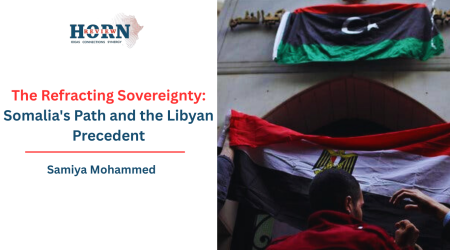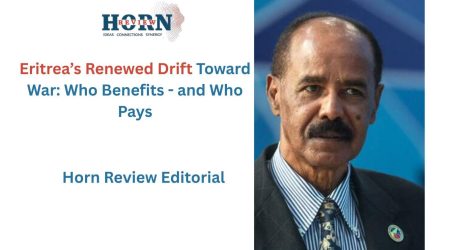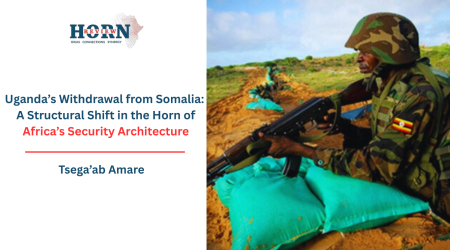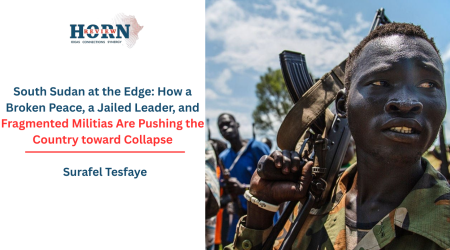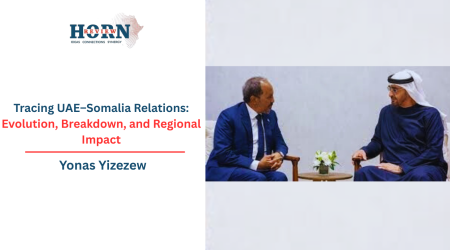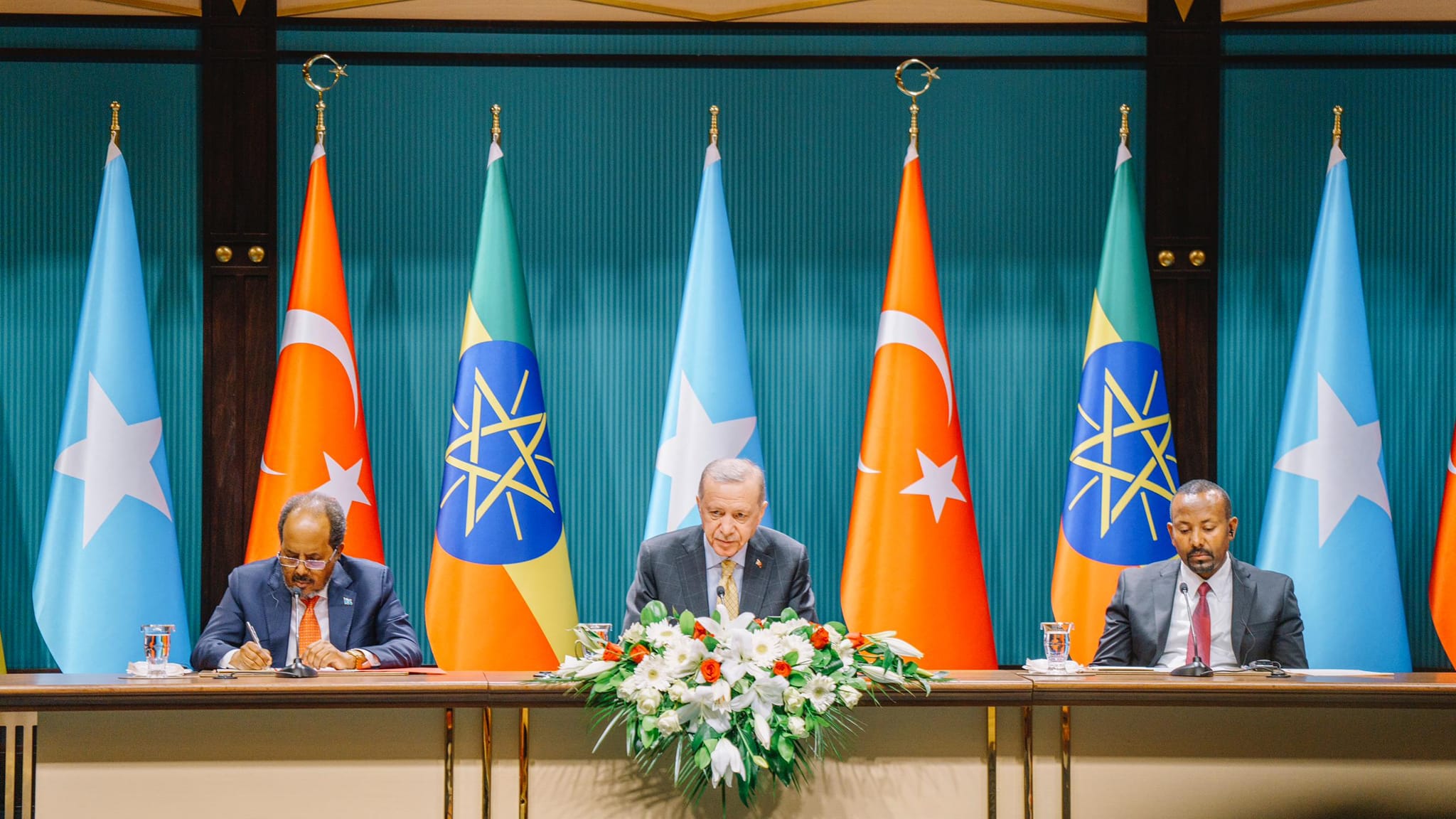
24
Jul
Fragile Alignments and Maritime Stakes: The Horn’s Unsettled Equilibrium Post-Ankara Declaration
The Horn of Africa’s geopolitical landscape remains deeply complex, shaped by intersecting strategic ambitions, shifting alliances, and unresolved sovereignty questions. As regional actors seek to secure influence amid growing instability, the balance of power teeters precariously. Ethiopia’s emerging maritime aspirations and its delicate engagement with Somaliland, coupled with the evolving Egypt-Eritrea-Somalia tripartite alliance, reflect a broader contestation over regional order, sovereignty, and access to critical resources. This analysis unpacks these dynamics, offering insight into the fragile diplomacy at play and the prospects for sustained stability in a region vital to both African and global strategic interests.
The Tripartite Alliance: A Strategic “Counterbalance”
The formal establishment of the Egypt-Eritrea-Somalia tripartite alliance on October 10, 2024, in Asmara, marks a significant recalibration in the Horn’s strategic environment (Al Jazeera, 2024). This bloc primarily aims to counterbalance Ethiopia’s increasingly assertive regional posture, notably in light of its recent naval agreement with Somaliland – a development perceived by alliance members as a challenge to existing territorial and maritime equities.
Egypt’s involvement is driven by concerns over the Grand Ethiopian Renaissance Dam (GERD) dispute, which remains unresolved despite protracted negotiations. For Cairo, bolstering military and diplomatic influence in the Red Sea corridor serves both to protect its vital Nile water interests and to reaffirm its role as a key regional power. Eritrea views the alliance as a bulwark against Ethiopia’s expanding maritime reach and an affirmation of its strategic position in the Horn. Meanwhile, Somalia’s participation signals a clear rejection of the Somaliland-Ethiopia naval deal, which it deems a violation of its territorial integrity and sovereignty (Somaliguardian, 2025).
Operationalizing this alliance, however, confronts substantial challenges. Egypt’s military is not optimally configured for sustained extraterritorial engagements, while Somalia continues to wrestle with internal instability and the persistent threat posed by al-Shabaab. Additionally, Somalia’s improving ties with Ethiopia following the Ankara Declaration have introduced complexities within the alliance, with Egypt expressing concern over Somalia’s shifting alignments. This nuanced balancing act reflects the fragility of the tripartite bloc, underscoring that its cohesion remains contingent on evolving geopolitical contingencies rather than institutional solidity.
The Ankara Declaration: A Fragile Accord?
The Ethiopia-Somaliland Memorandum of Understanding (MoU), signed on January 1, 2024, granting Ethiopia naval access to a 20 km stretch of Somaliland’s coastline in exchange for prospective recognition of Somaliland’s independence, remains a pivotal point of regional tension (IISS, 2024). This agreement epitomizes Ethiopia’s strategic maritime ambition, crucial for diversifying its access beyond landlocked constraints and for asserting influence in Red Sea geopolitics.
Turkey’s mediation culminated in the January 2025 Ankara Declaration between Ethiopia and Somalia, emphasizing mutual respect for territorial sovereignty and committing to future negotiations on commercial port arrangements (Republic of Türkiye MFA, 2025). Importantly, Somalia secured the suspension of Ethiopia’s naval activities in Somaliland as a precondition, a concession Ethiopia reportedly accepted under U.S. and Turkish diplomatic pressure (African Arguments, 2025).
Nevertheless, the Declaration deliberately preserves ambiguity – failing to explicitly nullify the MoU – allowing all parties to navigate domestic political pressures without overt confrontation. This diplomatic subtlety reflects Turkey’s strategic mediation approach but leaves unresolved core sovereignty questions central to long-term stability. Ethiopia’s nuanced reaffirmation of Somalia’s sovereignty, paired with its tacit retention of maritime commitments, suggests a cautious yet firm posture designed to safeguard its strategic interests without escalating regional conflict. Should the tripartite alliance intensify pressure on Addis Ababa, Ethiopia may respond by reaffirming or even strengthening its naval accord with Somaliland, asserting its maritime prerogatives as a counterweight to encirclement narratives.
Post-Ankara Progress in Ethiopia-Somalia Relations: Steps Toward Cautious Cooperation
Since the January 2025 Ankara Declaration, Ethiopia and Somalia have embarked on a tentative yet significant path toward normalizing relations and mitigating longstanding tensions fueled by Ethiopia’s prior naval agreement with Somaliland.
Following the Ankara Declaration, high-level diplomatic exchanges have increased, with Ethiopian and Somali officials holding multiple bilateral meetings throughout early and mid-2025. These engagements have focused on establishing joint technical committees to operationalize the Declaration’s commitments, including suspending Ethiopia’s naval presence in Somaliland and exploring mutually agreeable port access arrangements. While still in preliminary phases, these committees signal a mutual willingness to engage constructively, albeit cautiously.
Negotiations regarding Ethiopia’s access to Somali ports – primarily Berbera and Bosaso – have advanced incrementally. Somali authorities have expressed conditional openness to granting Ethiopia logistical and commercial privileges, contingent upon Ethiopia’s respect for Somalia’s sovereignty and territorial integrity. However, Somalia remains adamant about rejecting Somaliland’s claims to independence, which complicates Ethiopia’s recalibration away from the Somaliland MoU. Consequently, Ethiopia’s strategy appears to be hedging: maintaining diplomatic ties with Somaliland while simultaneously courting Somali ports, reflecting a dual-track approach that balances maritime aspirations with diplomatic prudence.
Enhanced cooperation on security matters, particularly addressing the threat of al-Shabaab, has also emerged as a priority area. Both countries have initiated information-sharing protocols and coordinated border security patrols, supported by regional actors such as IGAD and Turkey. These measures aim to reduce cross-border insurgent activities and foster a collaborative security environment, although operational challenges and mutual distrust persist.
Domestic and Regional Reactions to the Rapproachment
Within Somalia, the Ankara Declaration has been met with cautious optimism. Federal authorities view the rapprochement positively, recognizing it as a diplomatic development that reinforces Somalia’s sovereignty. Somaliland has expressed strong dissatisfaction, viewing Ethiopia’s naval engagement with Somaliland as a critical element of its long-standing pursuit of international recognition and maritime engagement. On Ethiopia’s side, while the government publicly supports renewed diplomacy, nationalist sentiments emphasize safeguarding the country’s strategic interests and access to maritime routes.
Regionally, Somalia’s improving ties with Ethiopia have introduced complexities within the Egypt-Eritrea-Somalia tripartite alliance, with Egypt expressing concerns over Somalia’s shifting alignments. This realignment underscores the ongoing fragility of regional blocs and highlights the fluid nature of Horn of Africa diplomacy post-Ankara.
Nonetheless, the broader regional environment remains volatile. Egyptian President el-Sisi’s declaration that “all options are open” if water allocations from the Nile are compromised, coupled with Egypt’s military drills near Sudan’s border, underscores Cairo’s resolute posture (OkayAfrica, 2025). Despite this, the prospect of outright military conflict over the GERD remains remote, given the catastrophic risks and the complex diplomatic entanglements involving global actors, including former U.S. President Trump’s engagement (MadaMasr, 2025).
Ethiopia continues to advocate for African-led solutions, maintaining caution towards external interventions, exemplified by its measured response to U.S. mediation offers. Turkey’s growing role as mediator highlights its expanding influence in the Horn and intensifies competition with regional actors such as Egypt and the UAE, adding layers of complexity to an already intricate geopolitical fabric.
A critical dimension frequently overlooked is the role of non-state actors like al-Shabaab, which exploit inter-state tensions to galvanize anti-Ethiopian sentiment within Somalia. The naval MoU with Somaliland has fueled nationalist backlash, which al-Shabaab leverages to strengthen its recruitment and operational capacity (War on the Rocks, 2024; EUAA, 2025). This dynamic underscores the intersection of sovereignty disputes with insurgency risks, further complicating prospects for durable peace.
Long-Term Trajectories and Outlook
Looking ahead, the Horn’s stability hinges on several pivotal flashpoints: the operational effectiveness of the tripartite alliance, the trajectory of Ethiopia’s maritime strategy, and the potential revitalization of militant groups amidst rising nationalist fervor. For regional bodies such as the African Union and IGAD, reinvigorated, coordinated multilateral diplomacy is essential. While their capacities are constrained by political divisions and resource limitations, they remain the most viable platforms for African-led conflict resolution (Crisis Group, 2024).
Turkey’s mediation efforts should evolve towards inclusivity that addresses sovereignty concerns transparently rather than circumventing them. Concurrently, renewed U.S. engagement must prioritize support for regional ownership of peace processes, avoiding heavy-handed tactics that risk exacerbating polarization.
The Horn’s future stability requires transcending zero-sum mentalities in favor of nuanced, collaborative diplomacy. Absent such a shift, the region risks descending from strategic rivalry to entrenched instability – an outcome no party can ultimately afford.
References
African Arguments. (2025, January 23). Ankara Declaration: A Positive Development Imbued with Regional Risks. https://africanarguments.org/2025/01/ankara-declaration-a-positive-development-imbued-with-regional-risks/
Al Jazeera. (2024, October 10). Somalia, Eritrea and Egypt pledge to bolster security ties. https://www.aljazeera.com/news/2024/10/10/somalia-eritera-and-egypt-pledge-to-bolster-security-ties
Crisis Group. (2024). The Stakes of Ethiopia-Somaliland Agreement. https://www.crisisgroup.org/africa/horn-africa/ethiopia-somaliland-stakes
EUAA. (2025, May 21). Somalia: Country Focus. https://euaa.europa.eu/sites/default/files/publications/2025-05/2025_05_EUAA_COI_Report_Somalia_Country_Focus.pdf
IISS. (2024). Ethiopia’s Strategic Maritime Access and the Somaliland MoU. https://www.iiss.org/publications/strategic-survey
MadaMasr. (2025, July 15). Trump says US ‘working on’ resolving Grand Ethiopian Renaissance Dam dispute. https://www.madamasr.com/en/2025/07/15/news/u/trump-says-us-working-on-resolving-grand-ethiopian-renaissance-dam-dispute/
OkayAfrica. (2025, July 14). What You Need to Know About the Tensions Between Ethiopia and Egypt Over River Nile. https://www.okayafrica.com/egypt-ethiopia-tension-gerd-dam/
Republic of Türkiye Ministry of Foreign Affairs. (2025). Ankara Declaration. https://www.mfa.gov.tr/ankara-declaration.en.mfa
Somaliguardian. (2025). Somalia’s Reaction to Ethiopia-Somaliland Naval Agreement. https://www.somaliguardian.com/somalia-reaction
War on the Rocks. (2024). Al-Shabaab’s Opportunistic Resurgence Amid Regional Tensions. https://warontherocks.com/2024/08/al-shabaab-resurgence-horn-of-africa/
Geopolitical Monitor. (2024). The Egypt-Eritrea-Somalia Alliance: Strategic Implications. https://geopoliticalmonitor.com/2024/11/strategic-horn-all
Disclaimer:
This analysis aims to provide a balanced and fact-based overview of the complex geopolitical dynamics in the Horn of Africa. Given the fluid and often contested nature of sovereignty claims, regional alliances, and diplomatic agreements, some interpretations may be subject to differing perspectives among the involved parties. The article does not endorse any particular political position or territorial claim but seeks to illuminate key developments and challenges based on publicly available information as of January, 2025. Readers are encouraged to consider the broader historical and political context and recognize that the situation continues to evolve rapidly.

